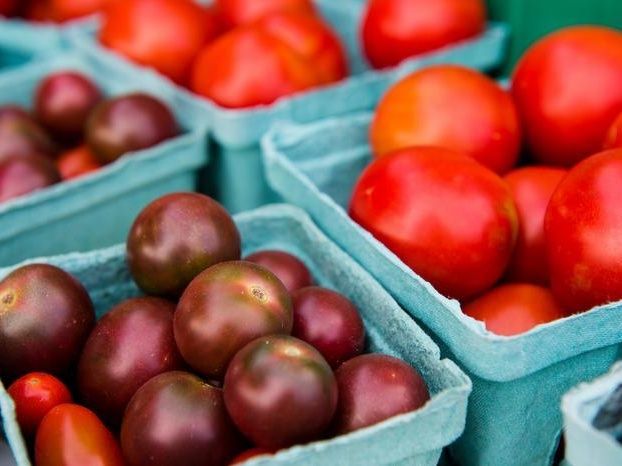Produce prescription programs yield positive health benefits for participants
Advertisement
Around the country, non-profits and local governments are testing the idea of food as medicine through "produce prescription programs" - with promising results, according to researchers from the Friedman School of Nutrition Science and Policy at Tufts University.

Produce Prescription Programs Yield Positive Health Benefits for Participants
Alonso Nichols/Tufts University
By prescribing free, healthy foods similar to how doctors prescribe medications, clinicians and policy makers hope to remove financial barriers to accessing fruits and vegetables to individuals with diet-related illness. Specifically, produce prescriptions offer vouchers, debit cards, or loyalty cards to access free or discounted produce at grocery retail and farmer’s markets and typically enroll food-insecure households. A Tufts-led pooled analysis of nine such programs found these programs were associated with positive benefits, from halving food insecurity to lowering blood pressure. The study, which is the largest known evaluation of these programs to date, was published in the American Heart Association journal Circulation: Cardiovascular Quality and Outcomes.
The researchers analyzed surveys and medical records from over 1,800 children and 2,000 adults who had been identified as low-income and at risk for cardiometabolic diseases. Study participants had been enrolled in produce prescription programs operating across 22 sites in 12 U.S. states from 2014 to 2020. Each program was operated by Wholesome Wave, a national nonprofit that works to address disparities in diet-related disease and enhance nutrition equity by making fruits and vegetables more accessible and affordable to low-income community members through systems change.
The data showed an increase in fruit and vegetable intake (by about a serving per day among adults) as well as improved clinical biomarkers of cardiometabolic health for adults. For example, diabetic patients saw a 0.3 percentage point drop in hemoglobin A1C, an indicator for average blood sugar levels in the previous three months, and a decrease in body mass index by 0.4 kg/m2 among those with overweight or obesity. In patients with hypertension, blood pressure also dropped by 5-to-8 millimeters of mercury. The improvement for these clinical biomarkers of cardiometabolic health were greater among participants with uncontrolled diabetes, obesity, or stage 2 hypertension.
The study also revealed improvements in fruit and vegetable intake, food security, and self-reported health status among child participants. While body mass index was not noticeably reduced in children, the researchers say these benefits reflect critical measures for their development, long-term health and well-being.
“We were excited to see the results, which showed that participants who receive this incentive consume more fruits and vegetables, yielding clinically relevant outcomes,” says senior study author Fang Fang Zhang, a nutritional epidemiologist and Neely Family Professor at the Friedman School. “We need larger-scale implementation of these programs, which may play a role in improving care, in particular for lower-income adults with obesity, diabetes, or hypertension.”





























































